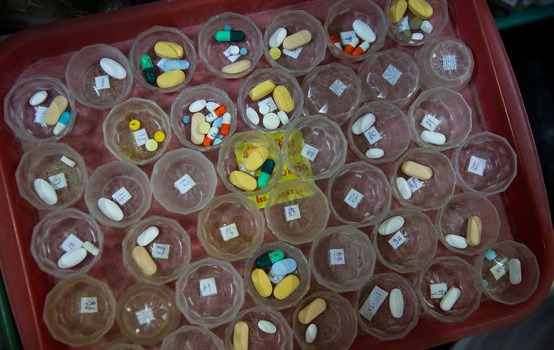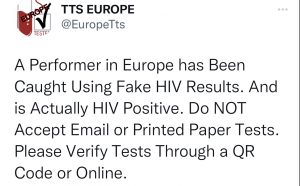For the first time, a major clinical trial has found that starting antiretroviral treatment soon after HIV diagnosis reduces the risk of sickness and death when compared with delaying treatment until HIV disease progresses. Until now, only substandard research supported the U.S. treatment guidelines’ recommendation for immediate HIV treatment regardless of CD4 count. According to the National Institute of Allergy and Infectious Diseases (NIAID), the primary backer of the study, the findings support offering ARVs to everyone living with HIV.

Pills were prepared for H.I.V. patients in Thailand in February. A study found early treatment for people with H.I.V. cut down on the number of deaths.
Taylor Weidman/Getty Images
“We now have clear-cut proof that it is of significantly greater health benefit to an HIV-infected person to start antiretroviral therapy sooner rather than later,” NIAID director Anthony S. Fauci, MD, said in a press release. “Moreover, early therapy conveys a double benefit, not only improving the health of individuals but at the same time, by lowering their viral load, reducing the risk they will transmit HIV to others. These findings have global implications for the treatment of HIV.”
START Trial
The randomized controlled Strategic Timing of AntiRetroviral Treatment (START) trial included 4,685 treatment-naive HIV-positive adults with a CD4 count above 500 and no symptoms of the virus at the outset. They were randomly assigned, about half and half, to begin treatment immediately or to wait until their CD4s dropped to 350 or below, or until they developed AIDS or other serious illnesses.
START, which was conducted by the International Network for Strategic Initiatives in Global HIV Trials (INSIGHT), began enrollment in 2011 and operated at 215 sites in 35 countries. The trial was intended to run under its initial protocol until the end of 2016. But the study’s independent data safety monitoring board conducted an interim analysis of the study based on March 2015 data and found that evidence supporting the benefits of early treatment was already very strong. Consequently, the board recommended that everyone in the trial be informed of the results and offered immediate treatment. The participants will still be monitored through 2016.






